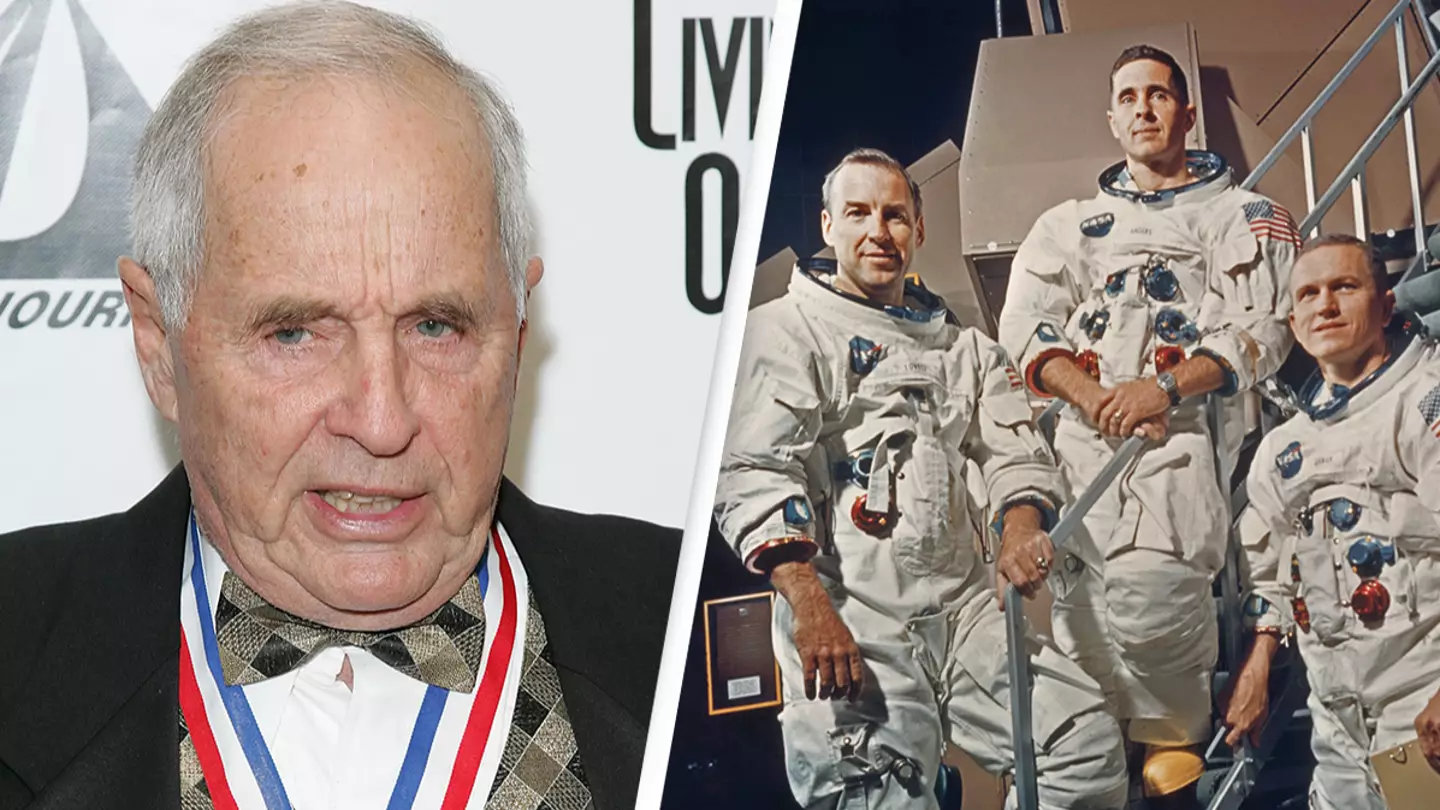
A 90-year-old man who was part of the Apollo 8 mission has died in a plane crash.
Retired Major Gen. William Anders was part of the team of astronauts who took on the Apollo 8 mission to the moon in 1968.
His son, Greg Anders, tragically revealed yesterday that his hero dad had died, after suffering a plane crash near Orcas Island in the San Juan Islands.
The aircraft he was flying is said to be a vintage Air Force Beech T-34A Mentor, which crashed into the water.
Advert

A video from the incident shows the plane flying in the sky before it began to plummet down rapidly, hitting the water and exploding.
General Anders was at the controls at the time of the crash.
In a statement, his son said: “The family is devastated.
Advert
“He was a great pilot and we will miss him terribly.”
It has been reported by the Federal Aviation Association (FAA) Anders was the only pilot on the flight.
US Coast Guard officials are currently responding with search and rescue efforts.
The former Apollo 8 astronaut was famous for capturing the iconic ‘Earthrise’ picture, which made it possible for people on Earth to see the planet as a blue marble from space.
Advert
Anders believed that this was the most significant impact he had on the space mission, given the impact it had, alongside making sure that the Apollo 8 command and service modules worked.
We imagine that’s a pretty important job to have!

In a history interview from 1997 with NASA, he proposed his view that he didn’t think the Apollo 8 mission was completely risk-free, but that there were more important national reasons for going ahead with it.
Advert
He estimated that there was a one in three chance the crew would never make it back home to Earth, but that there was the same chance of the mission being a success, and the same chance it wouldn’t start to begin with.
He noted that Christopher Columbus arguably sailed with worse odds.
In the interview, he explained how earth looked so seemingly insignificant and fragile from space, yet it was home to billions.
He said: “We’d been going backwards and upside down, didn’t really see the Earth or the Sun, and when we rolled around and came around and saw the first Earthrise.
Advert
“That certainly was, by far, the most impressive thing.
“To see this very delicate, colourful orb which to me looked like a Christmas tree ornament coming up over this very stark, ugly lunar landscape really contrasted.”
